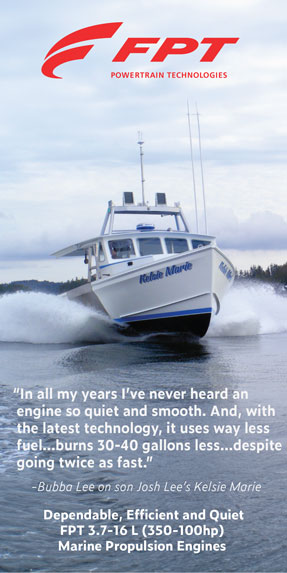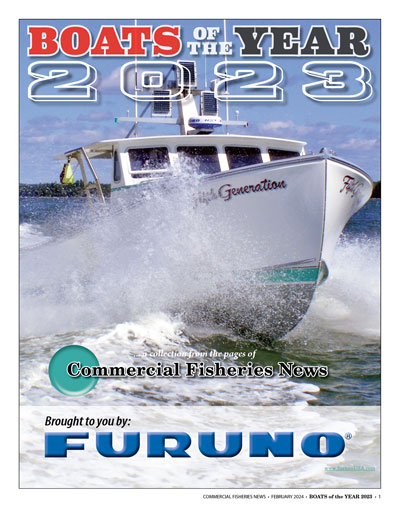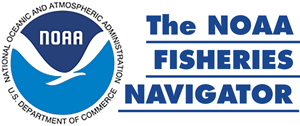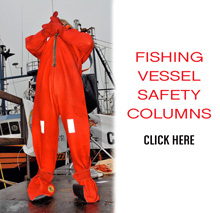Discussing weather, dehydration, more
At 47.5615° N and 52.7126° W lies the delightful coastal city of St. John’s in Newfoundland and Labrador, Canada.
It was here I found myself on Jun. 10-14 attending the fifth International Fishing Industry Safety and Health (IFISH) conference.
The prime sponsors of the event were the National Institute for Occupational Safety and Health (NIOSH), the SafetyNet Center for Occupational Safety and Health Research Memorial University of Newfoundland, and the Food and Agriculture Organization (FAO) of the United Nations.
 The attendees – 150 researchers and policy-makers – hailed from The Bay of Bengal Programme in Southeast Asia, the International Maritime Organization (IMO) of the United Nations, and SINTEF – a very large research and contracting organization located in Trondheim, Norway to name just three of the many organizations represented.
The attendees – 150 researchers and policy-makers – hailed from The Bay of Bengal Programme in Southeast Asia, the International Maritime Organization (IMO) of the United Nations, and SINTEF – a very large research and contracting organization located in Trondheim, Norway to name just three of the many organizations represented.
The more local attendees represented NOAA (MA), the Northeast Center for Agriculture, Forestry and Fishing (NY), the Fishing Partnership Support Service (MA), and the Harvard Education and Research Center (MA).
The first IFISH conference was held in Woods Hole, MA in 2000, sponsored by (NIOSH) and the Harvard School of Public Health Education and Research Center of which I am an employee.
This year’s IFISH was sponsored by the newly established (2015) NIOSH Center for Marine Safety and Health.
What draws this group of attendees with a broad range of expertise together?
An intense dedication to improving health and safety in the fishing industry – and in seafood processing and aquaculture – that’s what.
And what did we talk about for three-plus days?
Sessions ran the gamut from weather, causes of vessel losses, prevention of chronic injuries, safety and survival training, policies and regulation, to approaches to seafood processing and aquaculture – a new emphasis this year.
Here are some comments from two of the themes.
Weather
It is interesting to me that with weather playing such an important role in crew and vessel safety that it has not been more of a focus in the safety and health research.
Many reports and much of the
safety and health research literature
on casualties tend to mention
weather generically as “rough seas” or “strong winds” without defining these terms.
These articles, the speakers said, do not “take weather apart” to look for causal factors of an incident.
On the other hand, the “risk” literature is taking weather apart but has not gotten around to doing it in reference to fishing safety.
In taking “weather apart,” one researcher found that wind is often a factor in casualties for vessels less than 45’ in length, while sea ice is often the factor in casualties for vessels longer than 45’.
This statement brings up the question: What weather information do fishermen use when deciding whether to go out or not?
What, in other words, is the wind and sea state threshold for whether to begin or continue a trip?
What information do fishermen use to make these decisions and whom do they consult?
Interestingly, to me, there are currently weather researchers who are trying to tease out how fishermen make “go, no go” decisions so that they, the weather researchers, can provide the weather information that would be most helpful to fishermen.
Some of these researchers are using VMS data combined with weather data to plot spatial-temporal (space-time) patterns of weather and traffic. These patterns may reveal the wind and sea state conditions that captains are willing to take on.
Apparently, fishermen would like more detailed forecasts, but smaller forecast zones.
What improvements in the weather forecast would help your decision-making?
Dehydration
I had never thought of it before, but Marion Edwin of Optimise Ltd., in New Zealand did some studies on crew out on multi-day trips.
She found fishermen were, in general, quite dehydrated, and some, very dehydrated.
She designed an intervention in which she measured hydration at the beginning of the trip, gave the fishermen a pep-talk on the importance of staying hydrated, and measured hydration at the end of the trip.
She saw some improvement over the course of the trip, but not as much as she would have liked.
Some fishermen realize that dehydration can result in upper body musculo-skeletal pain and discomfit, but many don’t realize that dehydration can also lead to poor decision-making and impaired thinking.
A recent literature review on dehydration and cognition by A. Adan published in the Journal of the American College of Nutrition (2012) revealed that “being dehydrated by just 2% impairs performance in tasks that require attention, psychomotor, and immediate memory skills….”
Ms. Edwin’s point was that dehydration might be responsible for some of the casualties that result in vessel loss, injury, or fatality in the fishing industry.
Her advice to fishermen: “Treat yourself like an athlete” and drink lots of water. (And if it is desalinized water – remember it has to be remineralized to be safe over the long term).
Ann Backus, MS, is the director of outreach for the Harvard School of Public Health’s Department of Environmental Health in Boston, MA. She may be reached by phone at (617) 432-3327 or by e-mail at <abackus@hsph.harvard.edu>.
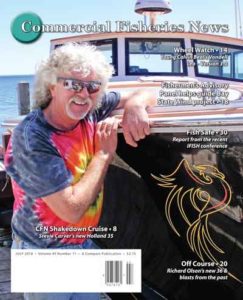 To get the rest of the great articles in this month’s CFN you’ll need to purchase a Print copy or the Online Access Password.
To get the rest of the great articles in this month’s CFN you’ll need to purchase a Print copy or the Online Access Password.
Please choose from the following options:
• BUY a Single PRINT edition of CFN that is delivered by MAIL. PRINT EDITION
• Quickly enjoy ONLINE access with our Hi-DEF flip-book. PURCHASE THIS ONLINE EDITION
• Shop the Online ARCHIVE
(Read online flip-book immediately with purchased access key and download a copy for yourself to keep. Not sure if it works for you? Try a FREE SAMPLE HERE.)
• SAVE BIG when you SUBSCRIBE!


